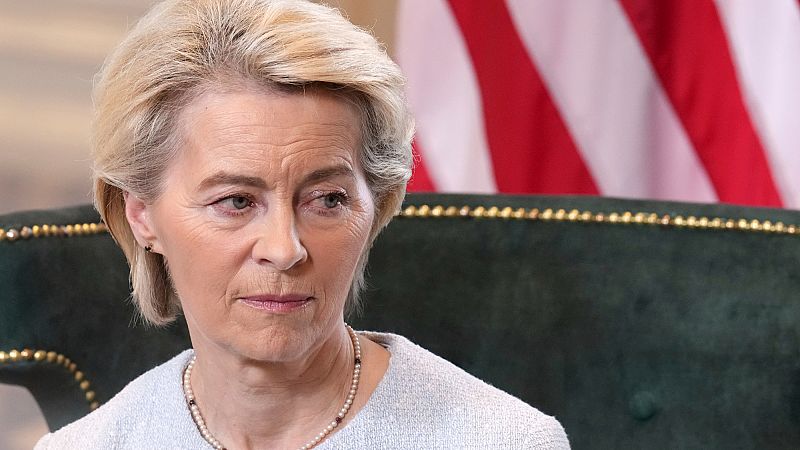EU Commission chief von der Leyen says she's 'not available' for German presidency

Ursula von der Leyen is not available to be the next German president, a spokesperson for the European Commission chief has told Euronews, in response to German media reports connecting her to the role.
Earlier, Der Spiegel and Bild reported that government circles in Berlin believe that von der Leyen has a good chance to succeed Frank-Walter Steinmeier, whose presidential term ends in 2027.
"President von der Leyen is fully focused on her duties as president of the European Commission. She is not available for other functions or positions,” said Paula Pinho, von der Leyen's spokesperson, in response.
The German newspapers wrote that speculation is rife in Germany about possible candidates for the federal presidency.
Bild wrote that major parties usually settle on an agreed candidate behind closed doors, making the election process predictable. Taking up the job could extend the political career of von der Leyen, according to Bild.
Spiegel highlighted that the Christian Democratic Union (CDU) party's leadership considered von der Leyen as a candidate for the presidency, where she'd be the first woman to take the head of state role in Germany, having been the first woman to lead the Commission in Brussels.
The newspaper noted that, having been re-elected Commission president last year, von der Leyen would be required to leave her current mandate early if she took up the German presidency when it becomes vacant in 2027. The paper noted that if this happened, Germany would lose a key powerbroker in Brussels.
Ursula von der Leyen has been the president of the European Commission since 2019. Earlier, she served the German government of Angela Merkel in different positions between 2005 and 2019.
Before being elected to the Commission's presidency, she was the minister of defence. Merkel is a member of Germany's ruling CDU party and the European People's Party.
She was re-elected head of the European Commission in 2024, and in July, she survived a motion of no confidence by a large majority.
The motion was initiated by far-right MEPs who wanted to bring her down, mostly because of lack of transparency in the purchase of anti-COVID vaccines.
According to experts, the motion emboldened the far right and has made von der Leyen politically more vulnerable.
Today

